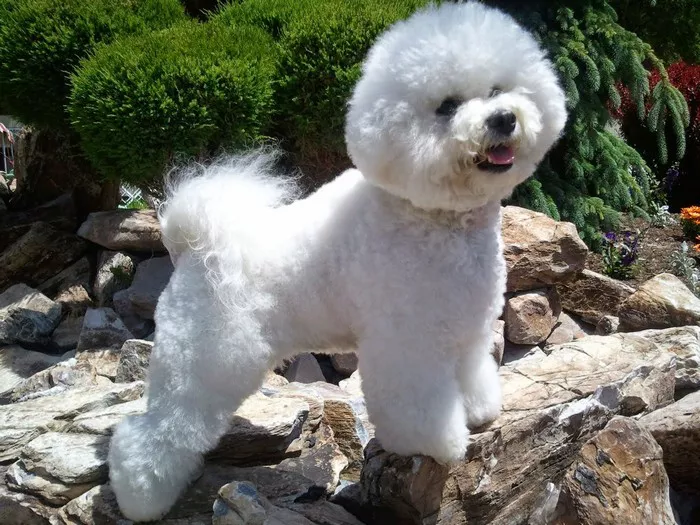Proper nutrition is essential for the health and well-being of our beloved Bichon Frises. As responsible pet owners, it’s crucial to be aware of the foods that can pose risks to our furry friends. In this comprehensive guide, we explore the nutritional needs of Bichon Frises and provide practical guidance on what foods to avoid to ensure their health and happiness.
Introduction to Bichon Frise Nutrition
Bichon Frises, with their playful demeanor and affectionate nature, rely on a balanced diet to support their overall health and vitality. Like all dogs, Bichon Frises require a diet rich in essential nutrients, including protein, carbohydrates, fats, vitamins, and minerals. Providing a nutritious and well-balanced diet is key to supporting their immune system, maintaining healthy skin and coat, and promoting optimal growth and development.
Foods to Avoid
While it may be tempting to share certain foods with our furry companions, some human foods can be harmful or even toxic to Bichon Frises. Here are some foods to avoid feeding your Bichon Frise:
Chocolate: Chocolate contains theobromine and caffeine, which can be toxic to dogs and may cause symptoms such as vomiting, diarrhea, rapid breathing, and even seizures. Dark chocolate and baking chocolate are particularly dangerous due to their higher levels of theobromine.
Grapes and Raisins: Grapes and raisins can cause kidney failure in dogs, leading to symptoms such as vomiting, diarrhea, lethargy, and decreased urine production. Even small amounts of grapes or raisins can be harmful and should be avoided.
Onions and Garlic: Onions and garlic contain compounds that can cause damage to a dog‘s red blood cells, leading to anemia and other health issues. Symptoms of onion or garlic toxicity may include weakness, pale gums, vomiting, and abdominal pain.
Xylitol: Xylitol is a sugar substitute commonly found in sugar-free gum, candies, and baked goods. Ingestion of xylitol can cause a rapid release of insulin in dogs, leading to hypoglycemia (low blood sugar) and potentially life-threatening complications.
Alcohol: Alcohol consumption can have serious consequences for dogs, including intoxication, vomiting, diarrhea, difficulty breathing, and even coma or death. Keep alcoholic beverages out of reach of your Bichon Frise at all times.
Harmful Ingredients
In addition to avoiding certain foods, it’s essential to be mindful of harmful ingredients that may be present in some commercial pet foods. These include:
Artificial Preservatives: Some pet foods contain artificial preservatives such as BHA, BHT, and ethoxyquin, which have been linked to health concerns such as cancer and allergies in dogs.
Artificial Colors and Flavors: Artificial colors and flavors are often added to pet foods to enhance palatability and appearance. However, these additives may have adverse effects on your Bichon Frise’s health and should be avoided whenever possible.
Fillers and By-products: Cheap pet foods may contain fillers such as corn, wheat, and soy, as well as by-products from the meat industry. These ingredients offer little nutritional value and may contribute to digestive issues and obesity in dogs.
Potential Health Risks
Feeding your Bichon Frise foods that are not recommended can pose several potential health risks:
Gastrointestinal Upset: Certain foods can cause gastrointestinal upset in dogs, leading to symptoms such as vomiting, diarrhea, and abdominal pain.
Toxicity: Some foods, such as chocolate, grapes, and xylitol, can be toxic to dogs and may cause serious health complications or even death.
Nutrient Deficiencies: Feeding an unbalanced diet or foods lacking essential nutrients can result in nutrient deficiencies, which may lead to poor growth, weakened immune function, and other health problems.
Alternatives and Treats
Fortunately, there are plenty of safe and healthy alternatives and treats that you can offer your Bichon Frise:
Fresh Fruits and Vegetables: Many fruits and vegetables are safe and nutritious for dogs, including apples, carrots, blueberries, and green beans. These can be offered as treats or added to your Bichon Frise’s regular diet for added variety and nutrition.
Lean Meats: Cooked lean meats such as chicken, turkey, and beef can be a tasty and protein-rich addition to your Bichon Frise’s diet. Be sure to remove any bones and excess fat before offering meat to your dog.
High-Quality Commercial Pet Foods: Choose high-quality commercial pet foods that are specifically formulated to meet the nutritional needs of Bichon Frises. Look for products that list real meat as the first ingredient and avoid those containing artificial additives, fillers, or by-products.
Homemade Treats: Consider making homemade treats for your Bichon Frise using simple, dog-safe ingredients such as peanut butter, oats, and pumpkin. Homemade treats can be a healthy and delicious alternative to store-bought options.
Conclusion
In conclusion, being mindful of what foods to avoid when feeding your Bichon Frise is essential for ensuring their health and well-being. By steering clear of potentially harmful foods such as chocolate, grapes, onions, and xylitol, and being cautious of harmful ingredients in commercial pet foods, you can help protect your furry friend from potential health risks. Instead, opt for safe and nutritious alternatives and treats that will support your Bichon Frise’s overall health and happiness. Remember to consult with your veterinarian if you have any concerns or questions about your dog’s diet or nutrition. With proper care and attention, you can provide your Bichon Frise with the nourishment they need to thrive for years to come.


